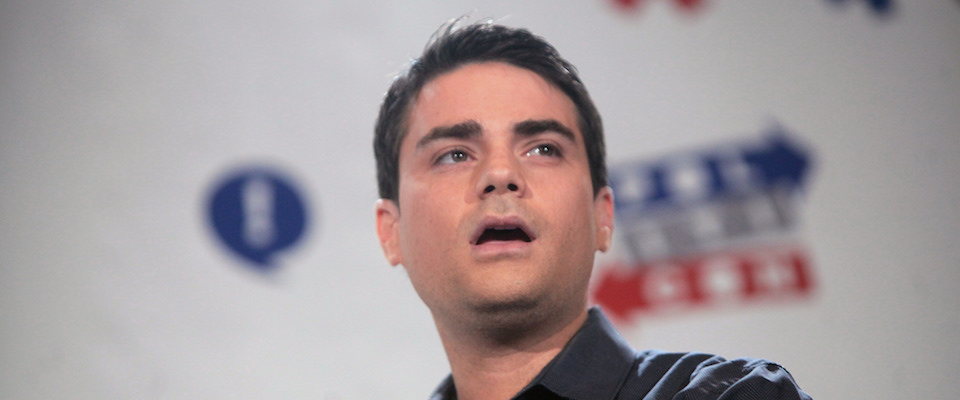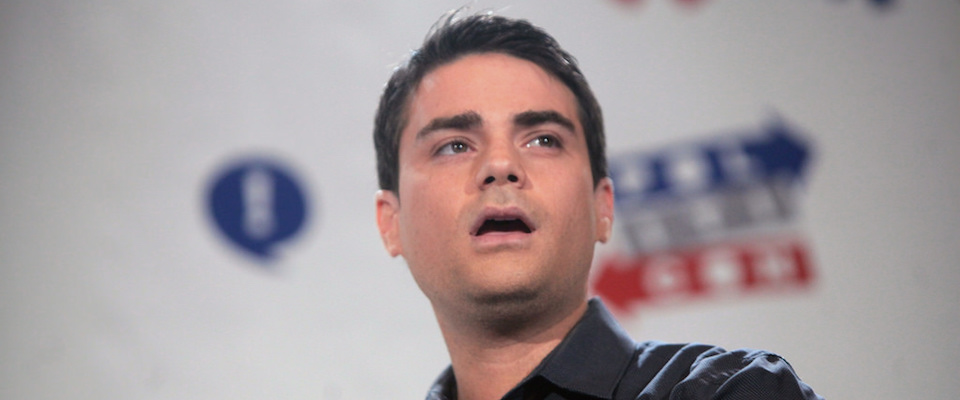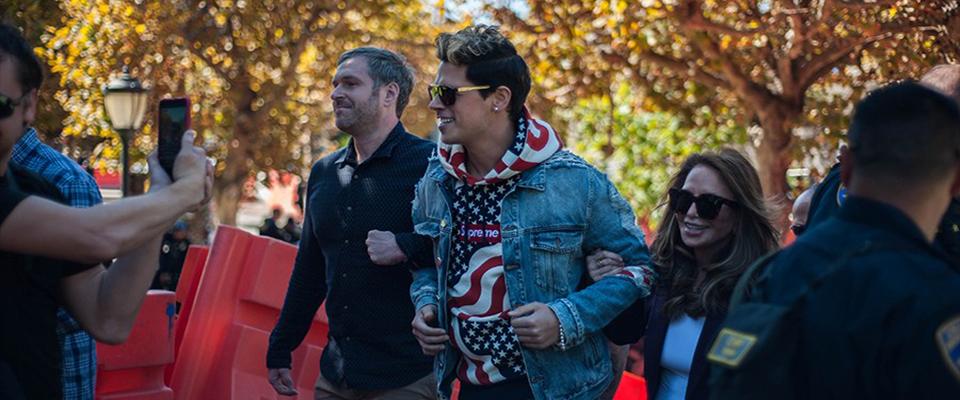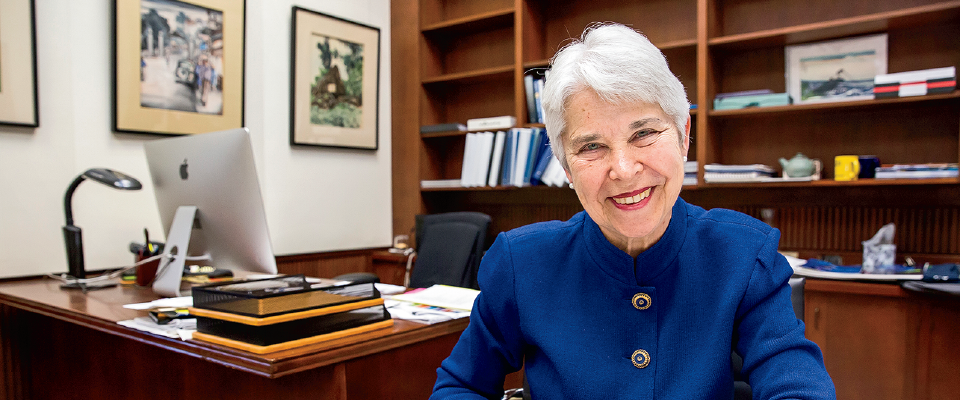It would have been hard to prepare for the Ben Shapiro event at UC Berkeley last night. Sure, as a reporter I’d done my due diligence in terms of research, following conservative pundit Shapiro and the provocative free speech controversy like a dog in heat. But I was in no way ready physically for the triathlon I’d need endure just to get into his speech.
Yeah, OK—the university had announced that security would be tight, but I figured it’d be more like a set of skinny jeans—not a suffocating corset. I was wrong. The UCPD put up concrete barriers around Zellerbach Hall, where the speech was being held, and many of the surrounding buildings and streets. Every barrier was guarded by a swarm of cops in riot gear—from the UC Berkeley Police Department, but also the Berkeley Police Department, Alameda Sheriff’s Department and the California Highway Patrol. The security costs added up to $600,000 according to Dan Mogulof, assistant vice chancellor of public affairs.
“Berkeley succeeded at building a wall before Donald Trump did,” Shapiro would say later that evening—a statement that would be met with chortles from the audience.
But what may have seemed excessive, Mogulof sees as a step to keeping future peace.
“I think in many ways the campus sees the money spent [on security] last night as an investment,” Mogulof says. “Meaning if we can begin to take some of the drama out of these events, if we can begin to return to the time when conservative and libertarian speakers came to campus with merely a ripple in the pond, then it’ll be well worth the investment.”
The excitement around the event was much less about Shapiro’s political ideas, and more about his presence on campus. Shapiro actually acknowledged this offhand during his speech, noting that there was certainly much ado about a speech in which he’d just be saying a bunch of things he’s already said. He even recalled how he spoke on campus in February of last year, and there was nary an eye batted.
This year, however, just to get a ticket, people had to walk four blocks up hill to the Memorial Stadium Box Office, since it was the only other ticket office located outside the security perimeter. Above the ticketing booths on an upper level outside the stadium, policemen hung over the railing like tinsel on a mantle, and I wondered if they’d be more than decorative as the night wore on.
I approached Zellerbach an hour later, exhausted from the trek and pat down I’d just endured, and I watched about 50 students occupy a nearby breezeway, yelling behind a sign that read “Students Against Fascism and War.” I stopped to snap a picture before being asked for my press-pass by a cop. I flashed it, then entered the venue to take my seat in the back.
A generous section of the auditorium was roped off for press and photographers, though we took up a very modest portion of the allotted space. About a quarter of the auditorium remained empty, leading to various conspiracy theories. Some in the audience alleged that people from ANTIFA or other anti-conservative groups had purchased tickets and then didn’t show on purpose, as a ploy to keep people from seeing Shapiro speak.

Others claimed that even though hundreds of people were still waiting outside the box office to nab unclaimed tickets, the administration had forbidden them from going in—again, the theory being that forces were conspiring to keep people from seeing Shapiro speak.
Mogulof says they didn’t give away tickets to random people because they wanted to protect students, and this was a process that the Berkeley College Republicans (BCR), the student group that invited Shapiro, had agreed to before the event.
“One of the key security measures we took is that to get a ticket you had to have photo ID, and that when you’d register for the ticket, the photo ID you showed had to match up with the ticket,” Mogulof said. “We weren’t going to violate that. We weren’t going to have a situation where suddenly people are showing up who are not identified.”
The seats that were occupied had Shapiro fans in them, who—when he finally graced us with his presence 20 minutes after the scheduled start time— leapt from their seats and clapped vigorously at him.
“I love you Ben!” some guy screamed.
Shapiro only spoke for 30 minutes, but wasted no time when it came to trashing UC Berkeley and any protestors.
“I wish the administration would have allowed us to fill up the rest of these seats, which we certainly would have,” Shapiro said, referring to upper balcony seats that the administration would not allow to be filled due to safety recommendations from the UCPD. (That would be the same UCPD that Shapiro later praised as the “heroes who stand between us and darkness.”)
“Also, thank you to the morons who put up the signs across the way,” Shapiro said, referring to a banner in the ASUC Student Union that read, “WE SAY NO TO YOUR WHITE SUPREMACIST BULLSHIT.”
I say thank you because I also say no to white supremacist bullshit!” Shapiro said, pointing to the yarmulke on his head, insisting it’s impossible for him to be a white supremacist Jew. “You can all go to hell, you pathetic, lying, stupid jackasses!” he exclaimed, as whoops and cheers exploded from the audience. A man shouted that the banner-writers were “Retards!”
After that throat clearing, Shapiro finally gave his talk—making points he had made countless times before in the media. He discussed why he’s pro-life, how he thinks identity politics suck, how America should reduce greenhouse gases by building nuclear power plants, how most Trump supporters aren’t white supremacists, and that Trump isn’t a fascist.
“Where’s Orange Hitler, shutting this down?” he said, adding that if anything, the United States has a “relatively ineffectual administration” that isn’t impinging on anyone’s free speech.
Out of the 20 or so people who asked questions for an hour, most of them were men. They tended to open with comments about how they agreed with him or respected him. One was a self-identified Muslim and high school junior. The audience wasn’t that diverse, but certainly not white-washed or exclusively male. During the Q&A, I had gazed over two cuddling lesbians while a middle-aged, bald, self-identified Jesus-lover talked to Shapiro about “the coloreds.”
In a moment of what seemed to be reprieve, Shapiro did actually thank the UC administration for putting on the event despite pushback from the left, and for allowing police to use pepper spray, which Shapiro referred to as “unshackling the police” so they could protect people.
“I enjoyed the lecture,” said Tim, a junior in applied math and a BCR member. “He had a strong opening, and I admired his ability to answer such tough questions.” He said he was surprised that Shapiro was calling the protestors names, but he also understood that Shapiro was justifiably mad about how he was being treated.

After the speech, I was supposed to go to Sproul Hall for a press debriefing, but when I tried to walk across the blocked off perimeter, the police told me I had to walk out and around in order to get to the building. After a 15-minute stroll around the barriers, I tried to gain access again, only to be told by the police that they weren’t letting people back into campus for another hour. As he said this, my phone died. There was no help for me.
I turned on my heel to face Bancroft Way, where cops were parting the sea of onlookers to let a golf-cart ambulance roll through. A woman was lying on the back of it. A man claiming to know the woman said she had been holding up a sign supporting Ben Shapiro and got into an altercation with another woman who tried to take it from her. At some point, the woman allegedly got pushed, and because she had three slipped discs, she couldn’t get back up.
A half hour later, a small group of people started yelling “Fascists go home!” over and over while an onlooker leaned in and asked me, “Where are these fascists?” Another next to him said, “I think they went home.”
A small fight almost broke out, but cops immediately held the instigators down, then took them away. This was the extent of violence that I witnessed, though I’d learn later that nine were arrested over the course of the day.
Tristan, a Ph.D. student in STEM, said he wasn’t protesting, but merely showed up to see how polarized Berkeley had become. His friend Caleb added, “Yeah, I think a lot of people just came to watch.”
When others found out I had actually been inside the theater, five of them gathered round me excitedly asking questions, desperate for every juicy detail. I shrugged and broke it to them easy: It really was much ado about nothing… but a speech.





















